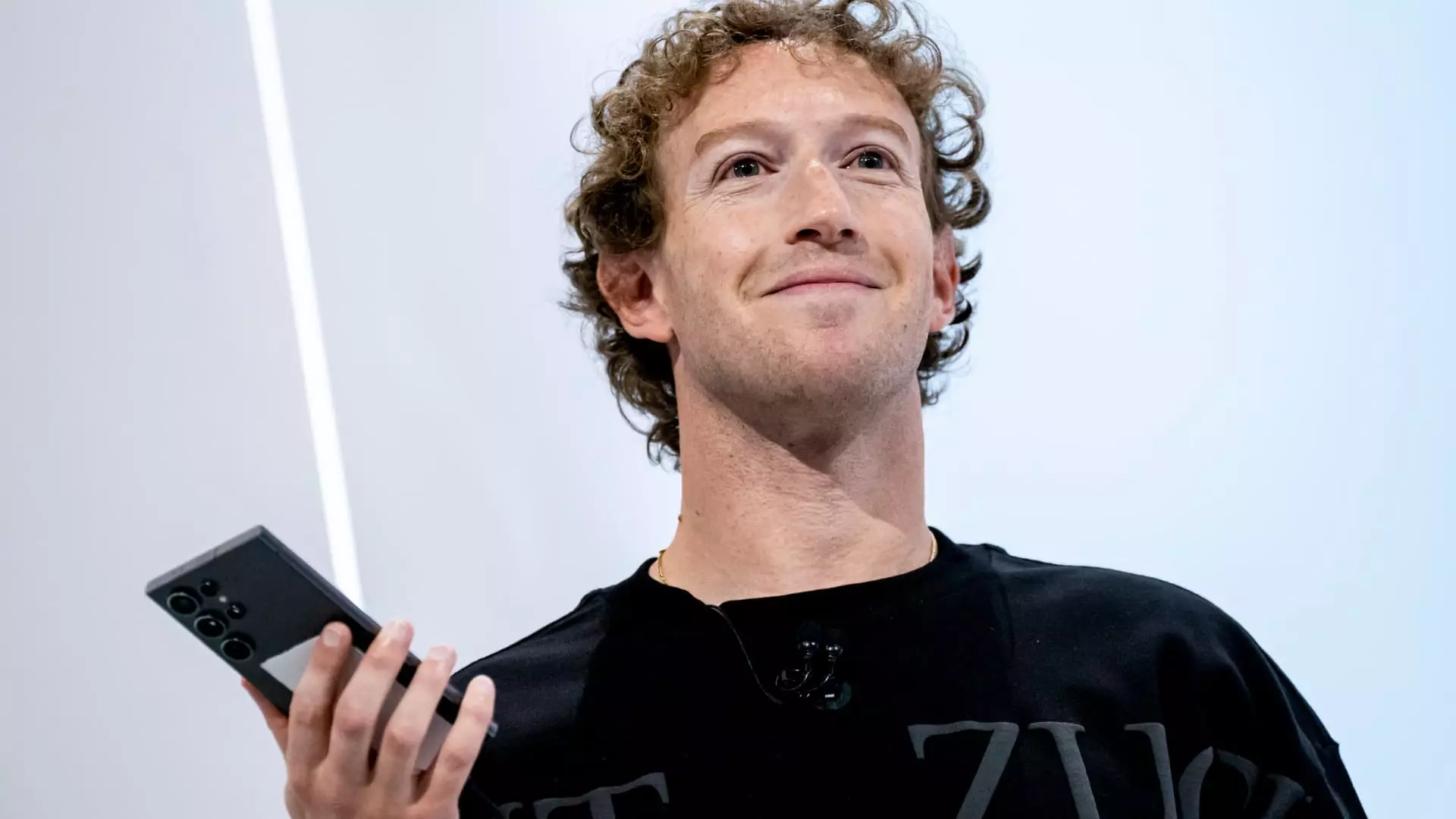In a recent episode of the “Joe Rogan Experience,” Meta’s CEO, Mark Zuckerberg, did not hold back in his criticisms of Apple, the tech giant founded by Steve Jobs. His analysis extended beyond mere rivalry—instead, it delved into the deeper implications of innovation stagnation and the impact of corporate policies on consumer choices. As the technology landscape continues to evolve rapidly, arguments surrounding leadership in innovation and ethical business practices become increasingly significant.
Zuckerberg articulated a poignant perspective regarding Apple’s recent trajectory. He acknowledged the profound influence the iPhone has had on global communication and access to technology. However, he lamented what he viewed as a stagnation of innovation following the revolutionary launch of the iPhone two decades ago. He characterized Apple’s current offerings as rehashed iterations of existing technology rather than groundbreaking innovations. This critique raises profound questions: Is Apple resting on its laurels, coasting on the success of past inventions without pursuing the next big leap forward?
Zuckerberg’s analysis hints at a broader issue in the tech industry: the risk of falling into a pattern of complacency. By focusing on incremental improvements rather than transformative advancements, companies run the risk of alienating consumers who crave pioneering technology. As competition rises, leaders in the sector must be vigilant to adapt and innovate or face declining market relevance.
One critical aspect of Zuckerberg’s commentary revolved around Apple’s pricing strategies and developer policies. By suggesting that Apple imposes a “30% tax” on app developers, he argued that the company is prioritizing profit over fair competition and developer support. This perspective illuminates a prevailing concern in the tech landscape: are monolithic corporations leveraging their dominant positions to stifle innovation by smaller competitors?
The impact of such policies is far-reaching, potentially affecting the diversity of available products. By creating barriers to entry for developers, Apple may inadvertently limit the creativity and scope of innovation that drives technological advancement. Furthermore, this environment can lead to consumer stagnation, where the same types of experiences and products become the standard rather than a landscape filled with varied and novel options.
In defense of its restrictive policies, Apple frequently cites privacy and security as key justifications for its closed ecosystem. Zuckerberg contests this point, arguing that the lack of proper security protocols is not a valid reason to restrict access to developers. Instead, he calls for a more inclusive approach, where security measures enhance rather than limit connectivity and innovation.
This notion introduces an interesting dichotomy: the balance between a secure user experience and the freedom for developers to create diverse applications. Zuckerberg’s assertion could lead to a more enriching ecosystem, where security does not have to come at the cost of accessibility. The idea of fostering a collaborative environment could invigorate both developer creativity and user choice in ways that the current Apple model does not support.
Zuckerberg also commented on Apple’s Vision Pro headset, which he felt failed to create significant buzz in the market. While acknowledging the effort and potential behind Apple’s advancements in mixed reality, he pointed out that initial versions often do not deliver on expectations. This observation serves as a reminder that, in technology, the first iteration of a product may not always reflect its future potential. As other companies like Meta continue to innovate in virtual reality, speculation surrounds whether Apple can catch up or remain sidelined in this segment.
Mark Zuckerberg’s frank critique of Apple reveals a landscape where ongoing innovation is paramount. His insights highlight the need for tech giants to evaluate their business practices, embrace creativity, and foster an inclusive environment that benefits developers and consumers alike. As competition intensifies and consumer expectations rise, the path forward depends not just on maintaining legacy products but on forging new experiences. Whether Apple will heed these critiques or continue its established course remains to be seen, but one thing is clear: the conversation around innovation and ethics in technology is far from over.

